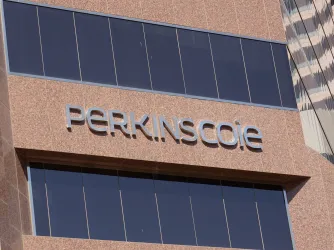Table of Contents
A Reminder About Shouting ‘Fire’ in a Crowded Theater

WATCH VIDEO: Can you shout fire in a crowded theater?
Few argue that there are or should be no limits to freedom of expression. Last week on The Torch, I discussed the boundaries of several categories of speech that are unprotected by the First Amendment, such as true threats and incitement to imminent lawless action. When arguing that expression that falls into one of these categories should be punished, there is ample case law to cite — still-valid Supreme Court holdings that are directly applicable to the speech at issue. But too often, would-be censors who have nothing else with which to justify their efforts at silencing others fall back on that old standard: “You can’t shout ‘fire’ in a crowded theater.”
Trevor Timm, writing in The Atlantic, and Popehat’s Ken White both implored the public back in 2012 to stop employing what White called “the most famous and pervasive lazy cheat in American dialogue about free speech.” Their message has not spread far enough, and we at FIRE think their thoughtful analyses of the historical context and the ramifications of the quote are worth pointing to.
In his article, Timm first notes that the usually-misquoted line — “The most stringent protection of free speech would not protect a man in falsely shouting fire in a theatre and causing a panic” — was never a statement of the law nor a description of an actual case before the Court. Justice Oliver Wendell Holmes wrote these words in the context of a 1919 case that would be received much differently today, both by the Supreme Court and by the court of popular opinion. Timm writes:
First, it's important to note [Schenck v. United States] had nothing to do with fires or theaters or false statements. Instead, the Court was deciding whether Charles Schenck, the Secretary of the Socialist Party of America, could be convicted under the Espionage Act for writing and distributing a pamphlet that expressed his opposition to the draft during World War I. As the ACLU's Gabe Rottman explains, "It did not call for violence. It did not even call for civil disobedience."
The Court's description of the pamphlet proves it to be milder than any of the dozens of protests currently going on around this country every day:
It said, "Do not submit to intimidation," but in form, at least, confined itself to peaceful measures such as a petition for the repeal of the act. The other and later printed side of the sheet was headed "Assert Your Rights."
In other words, Schenck was facing criminal charges for precisely the sort of political speech that is at the core of what the First Amendment was written to protect. I would wager that most people throwing around the “fire in a theater” quote would enthusiastically support the right to express Schenck’s viewpoint today. Yet would-be censors cite this dishonorable moment in legal history (now, thankfully, nearly a century behind us) to justify whatever ad hoc determinations they’ve made about who shouldn’t have a right to speak freely.
Timm elaborates on the context of the Holmes quote, distinguishing the quote from language that creates binding law:
The crowded theater remark that everyone remembers was an analogy Holmes made before issuing the court's holding. He was explaining that the First Amendment is not absolute. It is what lawyers call dictum, a justice's ancillary opinion that doesn't directly involve the facts of the case and has no binding authority. The actual ruling, that the pamphlet posed a "clear and present danger" to a nation at war, landed [Schenck] in prison and continued to haunt the court for years to come.
In White’s article on the overused phrase, he provides a thorough look at how deeply the Court carved into freedom of expression during wartime and how furiously Holmes tried to backpedal. Finally, in the 1969 case Brandenburg v. Ohio, the Court announced a new standard to govern speech like Schenck’s, setting a much higher bar for what could be punished by the government: speech that is “directed to inciting or producing imminent lawless action and is likely to incite or produce such action.”
Regardless of whether one believes that the current boundaries of unprotected “incitement” are too narrowly drawn, the Court’s holding in Brandenburg at least ensures that people voicing opposition to the draft, or otherwise criticizing the government, will not be put in prison for their advocacy.
Post-Schenck, Holmes wrote a dissenting opinion in Abrams v. United States (1919), another speech-restrictive Espionage Act case. Holmes’s writing in Abrams, however, is much more consistent with the current state of First Amendment jurisprudence:
[T]he ultimate good desired is better reached by free trade in ideas—that the best test of truth is the power of the thought to get itself accepted in the competition of the market, and that truth is the only ground upon which their wishes safely can be carried out. That, at any rate, is the theory of our Constitution.
As Torch readers may know, the Court has since characterized universities as “peculiarly the ‘marketplace of ideas.’” They are places where we should especially foster “free trade in ideas” and be especially hesitant to censor speech based on concerns that it may potentially, at some indeterminate point in the future, inspire someone to break the law or obstruct the functioning of a government entity.
So when it comes to racist speech, speech that could cause emotional discomfort, or speech that might not conform to vague notions of “civility,” it’s not enough to say simply that these types of expression should be censored because “you can’t shout ‘fire’ in a crowded theater.” As White aptly sums it up:
Holmes quote [stands for] for the proposition that not all speech is protected by the First Amendment. But this is not in dispute. Saying it is not an apt or persuasive argument for the proposition that some particular speech is unprotected, any more than saying "well, some speech is protected by the First Amendment" is a persuasive argument to the contrary.
Click over to Popehat and The Atlantic for more analysis, and check out FIRE’s Guide to Free Speech on Campus to read about how (current!) First Amendment law affects the free speech rights of students and professors on college and university campuses.
Recent Articles
FIRE’s award-winning Newsdesk covers the free speech news you need to stay informed.

Harvard’s resistance to Trump is a model for US universities

Sixty-one media organizations and press freedom advocates contest Perkins Coie executive order — First Amendment News 466

Harvard stands firm, rejects Trump administration’s unconstitutional demands


